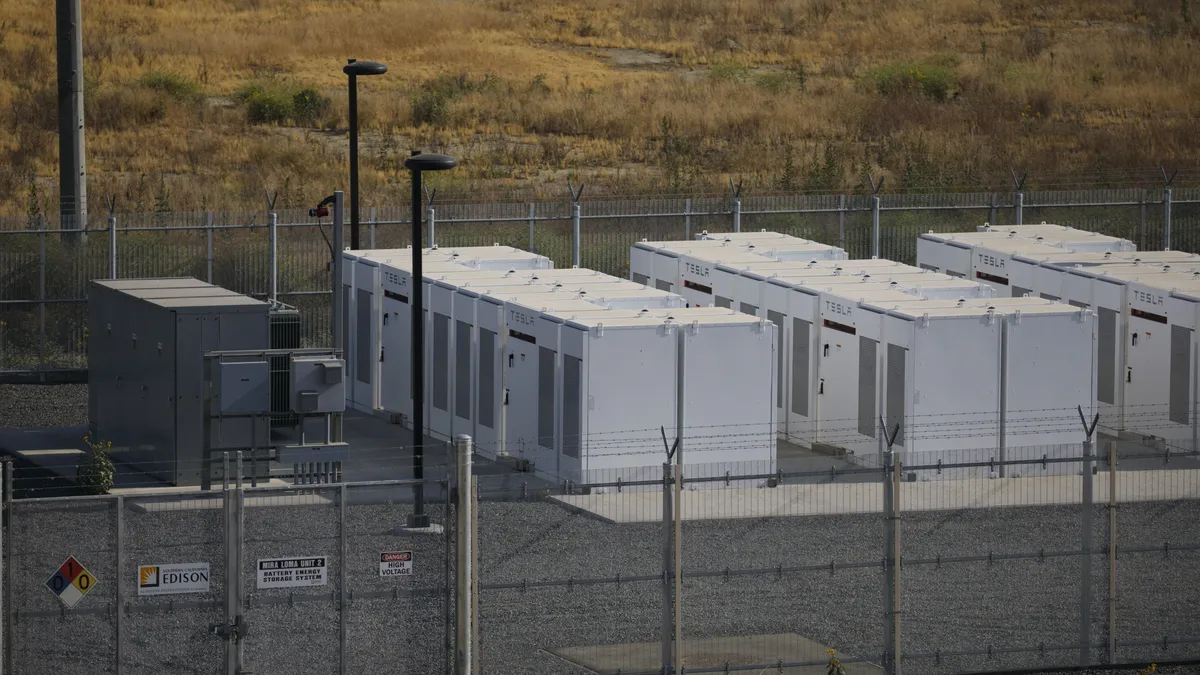Dive Brief:
- The Southwest Power Pool (SPP) Board of Directors on Monday approved 21 stakeholder policy recommendations on critical issues, such as enhancing reliability and cost allocation for new transmission.
- The SPP's Holistic Integrated Tariff Team (HITT), made up of 15 stakeholders, offered recommendations to prepare the regional transmission operator for the grid of the future, including improvements to the wholesale energy market.
- The transmission operator's generation portfolio has changed dramatically over the past decade, with 50 GW of wind, 28.5 GW of solar and 5.7 GW of storage in its interconnection queue as of June. Stakeholder recommendations focused on this reality, asking SPP staff to create a white paper on energy storage and the future impacts of a battery storage buildout.
Dive Insight:
Energy prices in the SPP are decreasing due to low gas prices and an increasing amount of cheap wind energy, but "these opportunities have created new operational and financial challenges," HITT said in its report. The changing resource mix leaves the SPP scrambling to put reliability mechanisms in place that would exist with conventional generation, the report noted.
And those changes have been significant. Wind generation is five times larger in 2019 than in 2009.
"This newly planned generation does not provide the fuel assurance SPP historically had. These reliability issues need thoughtful deliberation as the region looks toward the future," the report said.
HITT included five reliability recommendations:
- Studying essential reliability service, other reliability services and grid changes for the new technology;
- Determining whether the appropriate compensation model is being used based on the aforementioned previous study;
- Integrating ramping capabilities, fast-start resource logic and multi-day, long-term products in the marketplace;
- Continuing the development of a market product to address uncertainty, or potential reliability issues connected to increasing reliance on 'forecastable generation'; and
- Studying other operational tools to ensure battery systems remain reliable.
The queue also includes 5.7 GW of storage, leading the HITT stakeholders to recommend a specific study of the resource. "The impact storage will have on the future is evident by the increasing amount of batteries in SPP’s generation interconnection queue and the Federal Energy Regulatory Commission’s (FERC) Order 845," the report said.
On the same day of the HITT report's release, Nick Brown, SPP president and CEO, announced his retirement, effective April 2020. He will depart soon after the grid operator launches its new reliability coordination service in the West.
The leadership transition is not expected to affect implementation of the HITT's recommendations, according to SPP.
"Now that the board has approved the HITT's recommendations, SPP's stakeholder organizational groups will begin implementing them," Paul Suskie, Executive Vice President and General Counsel, told Utility Dive via email.
The stakeholder groups will draft tariff language and receive approval from groups such as the Federal Energy Committee and SPP's Markets and Operations Policy Committee, Regional State Committee and Board of Directors.
The board also changed the member fee to exit SPP, after the Federal Energy Regulatory Commission determined in April that the fee was unjust for non-transmission owners. All members will now pay a $100,000 exit fee, with load-serving entities subject to additional fees.















